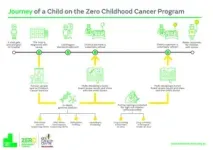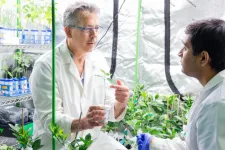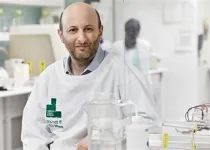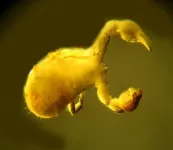(Press-News.org) The hidden challenges faced by people with tooth loss and dentures has been identified by new research from the University of Sheffield.
Improvements in dental care, more people living longer and the social value placed on having a healthy smile has led to people keeping their own teeth longer, but it has also led to an increasing number of people needing some kind of restoration work including crowns, bridges and implants.
Many of these treatments remain unobtainable for most people due to the availability of NHS dentists and the high cost of private dental work. Removable dentures are often the only viable option for anyone experiencing tooth loss with an estimated 10 to 15 percent of the population wearing them.
A new study by researchers at the University of Sheffield’s Healthy Life Span Institute and the School of Clinical Dentistry has highlighted the emotional struggles and hidden challenges patients experience when having dentures fitted. This is the first study to map out the patient journey and how this experience can affect the overall success of the treatment.
The study found that patients think about their denture journey in four stages:
Tooth Loss: This is the initial stage where patients experience the physical loss of teeth.
The Emotional Tunnel: This stage focuses on the emotional rollercoaster of tooth loss. Patients experience self-consciousness, depression, and struggle with dentures. They may feel shame, anger, or fear, but also hope.
Prosthetic Hope: This stage represents the hope and optimism patients feel when getting dentures. They might anticipate regaining their smile and ability to eat normally.
Prosthetic Compromise leading to managing disclosure: This final stage acknowledges that dentures take some getting used to. Patients might need to adjust their expectations and learn how to manage talking and eating with dentures. They might also develop strategies to feel comfortable disclosing their denture use to others.
These feelings and how dentists understand and manage them can influence the patient outcomes. A dentist's empathy during this adjustment period is crucial for successful denture use and better patient outcomes.
The study also identified that wearing removable dentures can be a hidden disability for many. People with dentures feel they have to hide them due to feeling embarrassed or worrying they will fall out. Some patients also avoided social situations
Lead researcher Barry Gibson, Professor in Medical Sociology at the University of Sheffield said “Tooth loss can be hugely traumatic and this study has uncovered just how challenging it is for people needing partial dentures. Feelings such as embarrassment or shame can significantly affect the process of having dentures made and fitted. On top of this if they don’t fit properly this can make everyday activities such as speaking, eating and drinking very difficult which affects a person’s quality of life. The impact can be so dramatic that it can impact their confidence to leave the house. This can have a devastating and lasting impact.
“Understanding the emotional difficulties identified in the study will help dentists to improve the care given to denture patients and lead to a more successful and better experience for everyone”
The research team partnered with local Sheffield artist Gina Allen to create an art piece reflecting the diverse emotional journeys of denture wearers.
The picture is a collage that illustrates the type of journeys patients go through from tooth loss to life with a denture. It uses colour to depict the emotional nature of the journey and demonstrates that all patients have a unique journey and outcome from the experience. One patient, a young woman, has a successful outcome; a middle-aged man is OK but a bit 'Meh!' An older woman continues to struggle to cope with some aspects of adapting to her denture.
Artist Gina Allen said “I’m a visual artist with a science background and a particular interest in how art can help to explore and interpret data, often around social and environmental themes. It seemed to me that there was such a depth and variety of individual experiences captured by the research team on this project, so it was a really interesting challenge to be involved in, trying to use the visual parameters of an artwork to convey some of that in an engaging and meaningful way.”
This collaboration has influenced the development of a new patient questionnaire designed to:
Identify Individual Needs: Tailor care based on specific patient experiences.
Improve Communication: Enable dentists and patients to have open conversations about dentures.
Trigger Follow-Up: Identify patients who may need additional support.
In addition to identifying the emotional challenges faced by patients, the study also highlights the need for a clinical care pathway to improve patient support, focus on improving denture fit, educate patients about denture care, and combat the shame and stigma associated with wearing dentures.
Mr Bilal El-Dhuwaib, Clinical Teacher in Restorative Dentistry at the University of Sheffield, said: “This study is important because it goes beyond the typical numbers-driven approach to dentistry by looking at crucial aspects of patients' emotions and lived experiences. By understanding the psychological and social impact of tooth loss and replacement, the research provides a valuable toolkit for myself and fellow dentists to better understand and address the emotional rollercoaster patients navigate during this process. By equipping dentists with the tools to understand these challenges, we can create a more compassionate and effective approach to tooth replacement."
The research team is seeking further funding to validate the questionnaire and develop a comprehensive clinical pathway for denture care. This pathway aims to improve patient outcomes and address the hidden struggles faced by denture wearers.
This study, published in The Journal of Dentistry was funded by global consumer health company Haleon.
END
Hidden challenges of tooth loss and dentures revealed in new study
The hidden challenges faced by people with tooth loss and dentures has been identified by new research from the University of Sheffield
2024-06-06
ELSE PRESS RELEASES FROM THIS DATE:
How medical models can transform agriculture
2024-06-06
Nano-agriculture: Sustainable solutions for global food security
PITTSBURGH—Researchers in the Department of Civil and Environmental Engineering at Carnegie Mellon University are using findings from nanomedicine and digital twin technologies to understand the new field of Plant Nanobiotechnology, address unsustainable agricultural practices, and meet increasing global food demands.
Currently, agriculture accounts for 14-28% of global greenhouse gas emissions and 70% of all freshwater withdraws. This, in addition to a range of other factors from extreme weather ...
World-first study into precision medicine for high-risk childhood cancer yields extraordinary results
2024-06-06
WORLD-FIRST STUDY INTO PRECISION MEDICINE FOR HIGH-RISK CHILDHOOD CANCER YIELDS EXTRAORDINARY RESULTS
VIDEO - https://www.youtube.com/watch?v=bwyugwVwNzc
In a world-first, Australian researchers and clinicians have shown that precision medicine – where treatment is tailored to an individual child’s cancer – leads to significantly improved outcomes in children with high risk cancer.
In a study published this week in the leading international journal Nature Medicine, the researchers found that precision medicine (also called personalised medicine) was shown to be superior to standard or non-guided therapy, both in terms of clinical response and survival.
A staggering ...
Better farming through nanotechnology
2024-06-06
Advanced technologies enable the controlled release of medicine to specific cells in the body. Scientists argue these same technologies must be applied to agriculture if growers are to meet increasing global food demands.
In a new Nature Nanotechnology journal review paper, scientists from UC Riverside and Carnegie Mellon University highlight some of the best-known strategies for improving agriculture with nanotechnology.
Nanotechnology is an umbrella term for the study and design of microscopically small things. How small? A nanometer is one billionth of a meter, or about 100,000 times smaller ...
First-of-its-kind test can predict dementia up to nine years before diagnosis
2024-06-06
Peer Reviewed | Observational study | People
Researchers at Queen Mary University of London have developed a new method for predicting dementia with over 80% accuracy and up to nine years before a diagnosis. The new method provides a more accurate way to predict dementia than memory tests or measurements of brain shrinkage, two commonly used methods for diagnosing dementia.
The team, led by Professor Charles Marshall, developed the predictive test by analysing functional MRI (fMRI) scans to detect changes in the brain’s ‘default mode network’ (DMN). The DMN connects regions of the brain ...
Popular chatbot is a politically left-leaning EU supporter
2024-06-06
With the European Parliament elections now underway, millions of EU citizens are finalizing their decisions about which political party best represents their views.
But anyone using LlamaChat, one of the major new AI chatbots, is very likely to be confronted with biased answers. It turns out that the large language model developed by Meta, upon which LlamaChat is based, has clear political leanings. This has been demonstrated in a new study from the University of Copenhagen in which Department of Computer Science researchers examined the language model's knowledge of political groups in the European Parliament. Moreover, they tested LlamaChat’s ...
Doctors advise caution as energy drinks may trigger life-threatening cardiac arrhythmias in patients with genetic heart diseases
2024-06-06
Philadelphia, June 6, 2024 – A new study in Heart Rhythm, the official journal of the Heart Rhythm Society, the Cardiac Electrophysiology Society, and the Pediatric & Congenital Electrophysiology Society, published by Elsevier, examined the potential dangers of consuming energy drinks for patients with genetic heart diseases. A cohort of 144 sudden cardiac arrest survivors was examined at Mayo Clinic, of which seven patients (5%) had consumed one or more energy drinks in close proximity to their cardiac ...
Only around half of individuals disclose or believe they should reveal having an STI prior to sexual intercourse, research to-date suggests
2024-06-06
A review of research to-date reveals the complex nature of revealing a diagnosis of a sexually transmitted infection (STI) to a partner ahead of engaging in sexual activity.
With individuals experiencing a variety of feelings and emotions related to the prospect of disclosure, the research shows that only around half or fewer individuals felt able to disclose their diagnosis to a partner before sexual engagement.
Peer-reviewed results, published today in The Journal of Sex Research, also show a similar number of people believed they should have to disclose having a STI to a partner prior to engaging in sexual intercourse.
In order ...
Climate crisis puts Australia’s ski industry on slippery slope, but not all hope is lost
2024-06-06
Australia’s ski industry is at risk of major disruptions and shorter seasons if the current level of climate pollution continues, according to new modelling from Protect Our Winters Australia (POW) and The Australian National University (ANU).
The report found the average ski season across all resorts in Australia will be 44 days shorter by 2050 under a mid-greenhouse gas emissions scenario and 55 days shorter under a high-emissions scenario.
It also shows that despite a dramatic decline in snowfall under mid- and high-emissions scenarios, the ...
Tiny roundworms carve out unique parasitic niche inside pseudoscorpion’s protective covering
2024-06-06
CORVALLIS, Ore. – The early worm gets the arachnid, fossil research by an Oregon State University scientist has shown.
In a parasitic first, a Baltic amber specimen has revealed that millions of years ago tiny worms known as nematodes were living inside of and feeding on the outer protective layer of pseudoscorpions.
“This is very strange,” said George Poinar Jr., who has a courtesy appointment in the OSU College of Science. “No other invertebrate-associated nematodes are known to have this detailed habit.”
Findings were published in Historical Biology.
Pseudoscorpions are a highly diverse lineage of arachnid, said Poinar, an international expert in ...
Research shows GLP-1 receptor agonist drugs are effective but come with complex concerns
2024-06-06
Drugs like Ozempic, Wegovy and Mounjaro have been around for years, but they’ve recently been making headlines due to a rise in popularity as weight loss agents. They all belong to a class of drugs known as glucagon-like peptide-1 receptor agonists (GLP-1RAs), which mimic a hormone (GLP-1) in the body that helps control insulin and blood glucose levels and promotes feelings of satiety.
These drugs are extremely effective for blood glucose control and weight management, which, combined with their relatively limited side effect profile, makes them ...
LAST 30 PRESS RELEASES:
Exercise and nutritional drinks can reduce the need for care in dementia
Michelson Medical Research Foundation awards $750,000 to rising immunology leaders
SfN announces Early Career Policy Ambassadors Class of 2026
Spiritual practices strongly associated with reduced risk for hazardous alcohol and drug use
Novel vaccine protects against C. diff disease and recurrence
An “electrical” circadian clock balances growth between shoots and roots
Largest study of rare skin cancer in Mexican patients shows its more complex than previously thought
Colonists dredged away Sydney’s natural oyster reefs. Now science knows how best to restore them.
Joint and independent associations of gestational diabetes and depression with childhood obesity
Spirituality and harmful or hazardous alcohol and other drug use
New plastic material could solve energy storage challenge, researchers report
Mapping protein production in brain cells yields new insights for brain disease
Exposing a hidden anchor for HIV replication
Can Europe be climate-neutral by 2050? New monitor tracks the pace of the energy transition
Major heart attack study reveals ‘survival paradox’: Frail men at higher risk of death than women despite better treatment
Medicare patients get different stroke care depending on plan, analysis reveals
Polyploidy-induced senescence may drive aging, tissue repair, and cancer risk
Study shows that treating patients with lifestyle medicine may help reduce clinician burnout
Experimental and numerical framework for acoustic streaming prediction in mid-air phased arrays
Ancestral motif enables broad DNA binding by NIN, a master regulator of rhizobial symbiosis
Macrophage immune cells need constant reminders to retain memories of prior infections
Ultra-endurance running may accelerate aging and breakdown of red blood cells
Ancient mind-body practice proven to lower blood pressure in clinical trial
SwRI to create advanced Product Lifecycle Management system for the Air Force
Natural selection operates on multiple levels, comprehensive review of scientific studies shows
Developing a national research program on liquid metals for fusion
AI-powered ECG could help guide lifelong heart monitoring for patients with repaired tetralogy of fallot
Global shark bites return to average in 2025, with a smaller proportion in the United States
Millions are unaware of heart risks that don’t start in the heart
What freezing plants in blocks of ice can tell us about the future of Svalbard’s plant communities
[Press-News.org] Hidden challenges of tooth loss and dentures revealed in new studyThe hidden challenges faced by people with tooth loss and dentures has been identified by new research from the University of Sheffield





